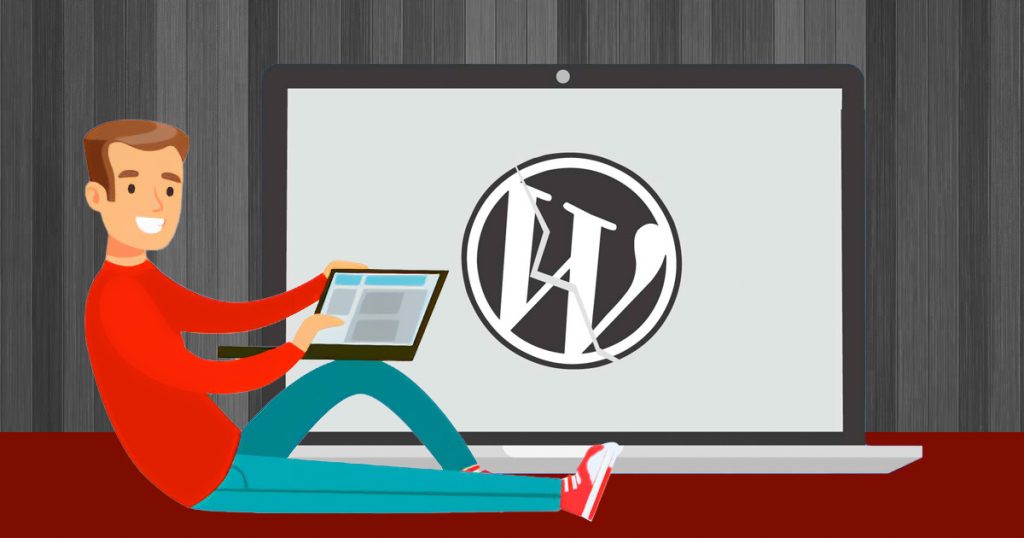WordPress has positioned itself as the preferred choice for website creation, whether for business or personal use. They offer an intuitive user interface and an extensive range of customizable functionalities that everyone can use. While it’s widely recognized for its reliability, it’s not immune to technical glitches. At times, you might encounter the frustrating situation of your WordPress website being down. In this article, we’ll delve into the reasons behind WordPress outages and provide a comprehensive guide to troubleshooting and resolving these issues.
Why Is My WordPress Site Down?
WordPress has established itself as a cornerstone of the internet, powering countless websites with its efficient and versatile platform. However, even with its robust architecture, websites can encounter downtime. The popularity of WordPress doesn’t exempt it from technical hiccups. When you encounter the question, “Why is my WordPress site not loading?” numerous elements could potentially play a role in the situation. Grasping these elements is the initial stride toward swiftly resolving the problem.
What to Look for When My WordPress Site is Down?
To effectively troubleshoot a downed WordPress website, it’s crucial to be aware of the common culprits behind such outages. Here’s an in-depth exploration of key aspects to inspect when your website unexpectedly goes offline:
1. Domain-Related Issues
Domain Connection – Your domain’s name servers and DNS records must be meticulously configured to establish a seamless connection to WordPress.com. Incorrect settings can disrupt the flow of traffic to your website, rendering it temporarily unavailable.
Domain Propagation – Changes made to your domain settings might not take effect instantaneously. DNS propagation, the process of these changes reaching all servers worldwide, can take up to 72 hours. During this time, your website’s accessibility might be intermittent.
2. Server and Hosting Problems
Server Crash – A catastrophic event like a hosting server crash can lead to complete website inaccessibility. In such cases, waiting for server recovery might be the only immediate option. Contacting your hosting provider for assistance and updates is advisable.
Host Issues – Hosting service problems, whether originating from your hosting provider’s end or your own, can be responsible for downtime. It’s essential to determine if the problem is confined to your site or if it has a broader impact. Contact your hosting provider to identify the root cause.
3. Plugin and Theme Conflicts
Broken Code – Plugins and themes are integral to WordPress functionality, but they can also be sources of problems. Incompatible plugins, incomplete updates, or poorly coded elements within them can lead to a white screen of death or even cause the entire site to crash. Regularly assess recent updates and changes that could trigger such issues.
4. Database Connection Errors
Error Establishing a Database Connection – This error notice indicates a disruption in the linkage between your site and its database. Validate the accuracy of database details, such as database name, username, and password. Consider utilizing tools like WP_ALLOW_REPAIR to diagnose and mend any database-related problems.
5. Resource Limitations
Exhausted Memory – PHP memory limit plays a crucial role in your website’s performance. Exceeding this limit can result in errors or site crashes. While increasing the PHP memory limit via php.ini and wp-config.php is possible, ensure that the adjustment aligns with the specifications of your hosting plan.
Is There Anything I Can Do to Troubleshoot the Issue?

When faced with a downed WordPress site, maintaining composure is essential. There are things that you can check first before calling in the experts to try and fix the problem. Here’s a comprehensive breakdown of actions you can take to troubleshoot and potentially resolve the issue:
- Confirm the Outage – Utilize tools like WebsitePlanet to determine if your website’s downtime is universal or limited on your end. This assessment helps establish whether the issue is isolated to your setup or a broader outage affecting numerous users.
- Identify Recent Changes – Reflect on recent modifications made to your website, including plugin installations, theme updates, or coding alterations. These changes could be instigators of downtime and provide valuable insights for resolution.
- Renaming Files and Folders – In the event of a white screen of death, systematically rename files and folders within your website’s file manager. This iterative process helps identify the specific element causing the issue.
- Check for Plugin Conflicts – Deactivate plugins one by one to identify potential conflicts. Reinstalling or updating the problematic plugin might resolve the issue.
- Repair Database and Check Memory – If confronted with database connection errors, assess the accuracy of your database configuration. Repair the database using tools like WP_ALLOW_REPAIR. Additionally, examine your site’s PHP memory limit, increasing it if necessary.
When you’ve tried everything and the issue persists, then it’s time to talk to the professionals. You can first talk to your developer about the issue and see if the problem is on your end or not. Once it’s determined it isn’t, you can contact WordPress or your hosting provider.
Do I Contact WordPress or My Hosting Provider?
Navigating a WordPress outage requires support, and you have two primary avenues for assistance:
1. WordPress Support
If the problem emanates from the WordPress platform itself, such as core software glitches or plugin conflicts, contacting WordPress support is advisable. Their expertise can guide you through resolution steps tailored to the platform.
2. Hosting Provider
For issues tied to servers, hosting-related glitches, or resource constraints, reaching out to your hosting provider is paramount. Hosting providers are equipped to diagnose server crashes, address hosting concerns, and ensure your hosting plan aligns with your website’s requirements.
In essence, while encountering a downed WordPress website might induce anxiety, understanding the underlying factors and employing a systematic approach to troubleshooting can lead to a timely resolution. Your website’s performance and accessibility can be reinstated by leveraging the support of WordPress experts or your hosting provider.
Bottom Line
Experiencing your WordPress website being down is undoubtedly frustrating, but armed with knowledge and troubleshooting strategies, you can navigate these challenges effectively. By understanding common causes, checking for recent changes, and taking the appropriate steps, you can often resolve downtime issues and ensure the seamless functioning of your WordPress site. Remember, if you’re unsure about the technicalities, seeking assistance from WordPress experts or your hosting provider is a prudent approach.

